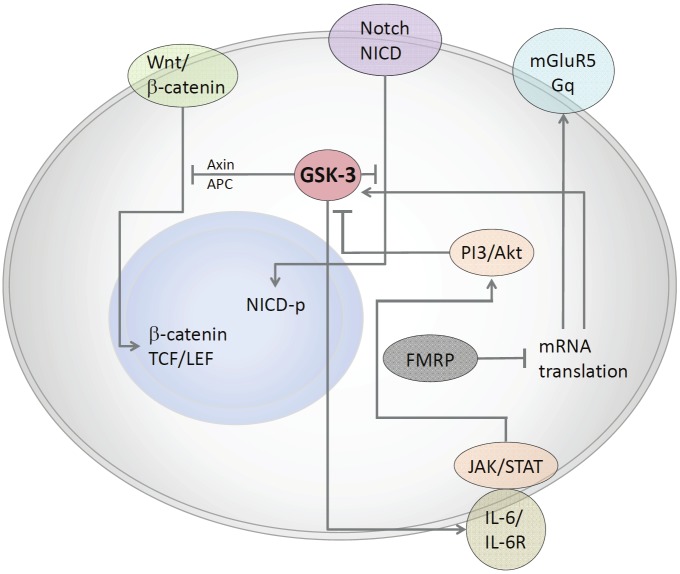Figure 1.
GSK3 regulates a variety of pathways involved in neurodevelopment. Active GSK3 regulates the canonical Wnt pathway by remaining bound to the Wnt/β-catenin destruction complex that includes APC and Axin. This complex targets β-catenin for proteasomal degradation. Inhibitory phosyphorylation of GSK3 releases β-catenin from the complex. It is then recruited to the nucleus by TCF/LEF where it induces gene transcription. GSK3β is known to phosphorylate and inhibit Notch, resulting in the inhibition of many Notch target genes. This inhibitory phosphorylation is reversed when Wnt1 is present. Inhibitory phosphorylation is induced by a number of kinases. The PI3/Akt pathway regulates GSK-3 activity by inducing inhibitory serine-phosphorylation. FMRP is deficient in Fragile X syndrome and is normally responsible for regulating mRNA transcription of metabotropic glutamate receptor-5 (mGluR5) and GSK3. It has been shown that inhibition of mGluR5 leads to the inhibition of GSK3. In addition to regulating neurodevelopmental pathways, it has been shown that GSK3 is also involved in pathways that promote inflammation. GSK3 induces IL-6 production, leading to the subsequent phosphorylation of Jak2/STAT3.

